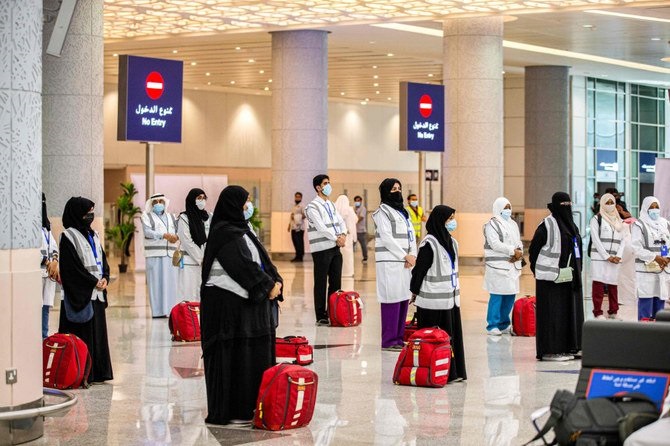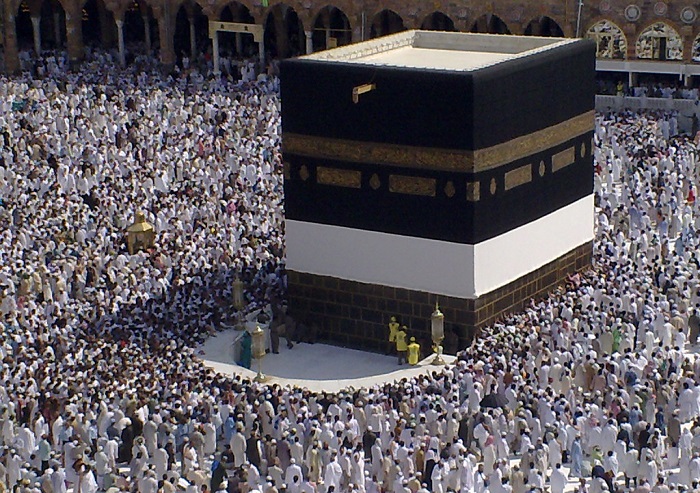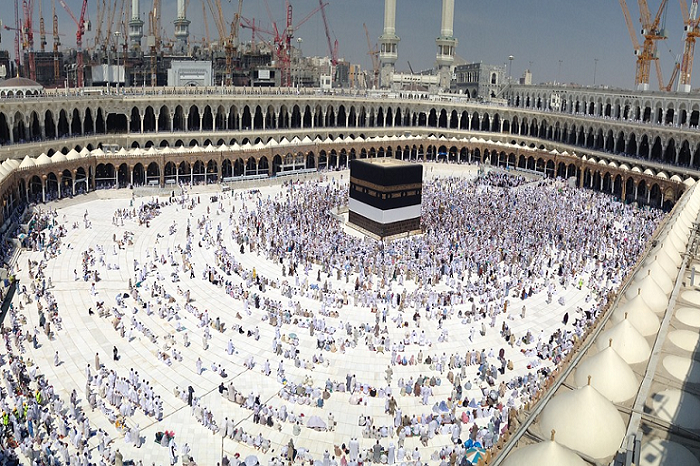Mecca: The pilgrims have arrived at Mecca for the Hajj ceremonies this year. Hajj would be the most controlled one with many precautions, this year, in its history due to the Covid-19 threat that sustains on the planet. No any pilgrims from other countries are allowed this year, except those who were residing in Saudi Arabia before the pandemic hit.
The first pilgrim group arrived was from the Qassim province. They had landed in King Abdul Aziz International Airport, Jeddah and later transported to hotels in Mecca. Shortly after this flight, more of them came from Madinah, Riyadh, Abha, Tabuk and Jizan on Saturday.
As per the Hajj precautions guidelines given to the pilgrims, they have to observe quarantine in their hotels till the Hajj ceremonies start. Also, they will have to remain in quarantine after the Hajj, before their return.

Mr. Hussain Al Sharif, the Undersecretary for Hajj Affairs said that the precautions for a smooth Hajj are analysed to be excellent. “As soon as they arrived, they were directed from the officials of the Ministry of Hajj and Umrah to the buses designated for them, while applying the approved health preventive protocols approved in the process of transportation,” he said.
This year, only around 1,000 believers take part in Hajj. The depth of the restrictions due to the pandemic becomes clearer when we come to know that, last year around 2.5 million arrived. Participation has been limited to residents of the kingdom, with a special quota for those who have been on the frontline against the coronavirus outbreak. Around 70 per cent of attendees are foreign nationals residing in the kingdom and 30 per cent are locals.
While strict health measures are taken, Saudi reported 2,201 new cases in the previous 24 hours, taking its total to 264,973. The kingdom’s death toll from Covid-19 totals to 2,703, while recoveries rose by 2,051 to 217,782, as per the statistics from the Saudi health ministry.

The officials said anyone trying to attend Hajj without a permit would face hefty fines and even jail time. The security services have erected a cordon around the main Hajj sites to ensure the safety of attendees. Those who are found to be transporting non-permit holders to the sites of Hajj will also be fined. “Hajj this year is very different and exceptional,” Major-General Zayed Al-Tuyan, commander of Hajj Security, said. “Hajj will be in very limited numbers under strict precautionary measures, and we will impose a complete security cordon around holy places and pilgrims during their movements.”
The ‘zamzam’ (the holy water) will be given only as bottled water from the Zamzam well, this year, the Authority said. The stones to be pelt at Jamrat as a part of the ceremony will be given sterilized to the pilgrims.
Olivier Barles, Regional Medical Director at International SOS in Dubai, said pilgrims would still have to watch out for heatstroke, dehydration, food poisoning and exhaustion while undertaking Hajj as they would every year.
Even in a regular year, the Hajj leaves pilgrims exposed to a host of viral illnesses. “A lot of people want to do the Hajj this year as it will likely be less burdensome and more organised due to a smaller crowd,” Umar Karim, a visiting fellow at the Royal United Services Institute in London, said.
“In the context of Covid-19, pilgrims are advised to keep a safe distance between each other, to wear face masks and gloves and maintain a high degree of personal hygiene by washing hands frequently,” Mr. Barles said.




![The Top & Most Popular Seafood Bucket Restaurants in Dubai for you [Never Miss]](https://uae24x7.com/wp-content/uploads/2020/09/8-seafood-in-a-bucket-scaled-e1600739237403.jpg)
![Procedures for Renewing the Driving License in Abu Dhabi [3 Simple Steps]](https://uae24x7.com/wp-content/uploads/2020/07/Capture-9-e1595666454466.jpg)





